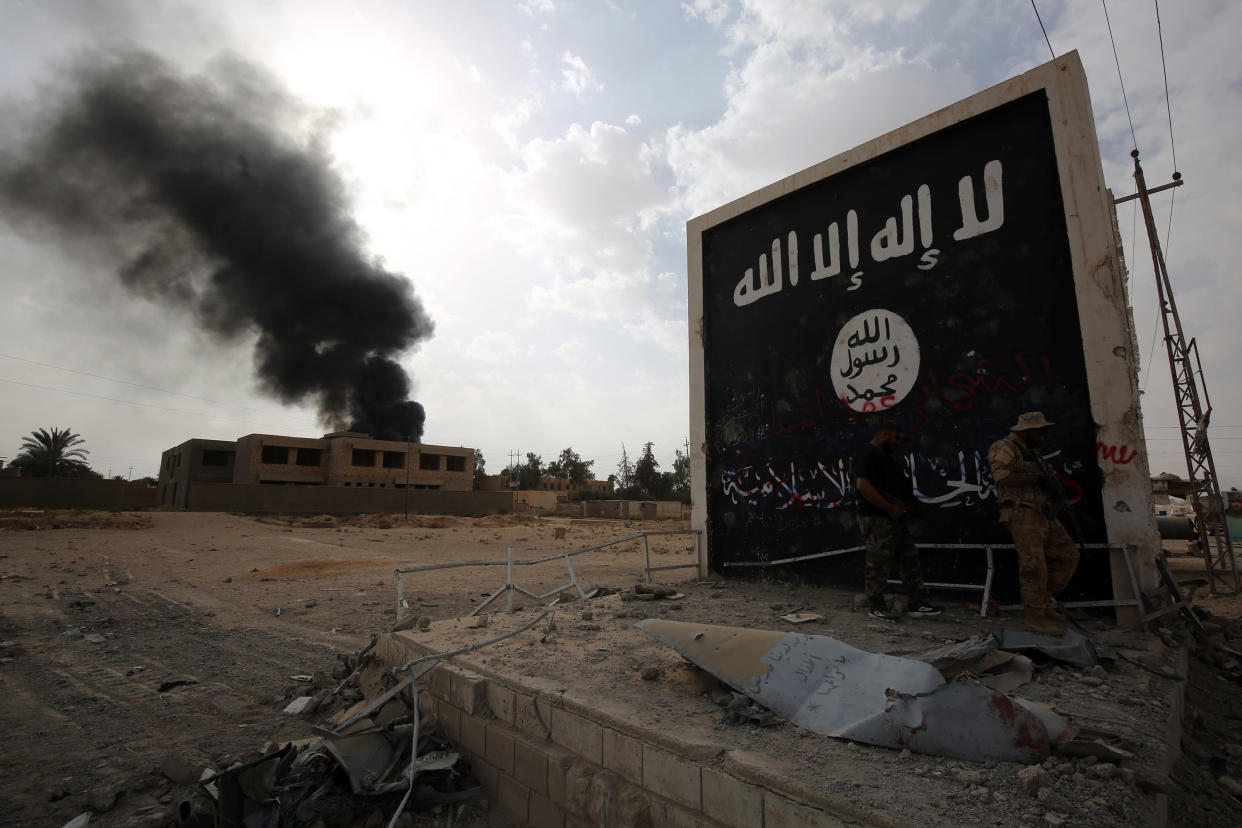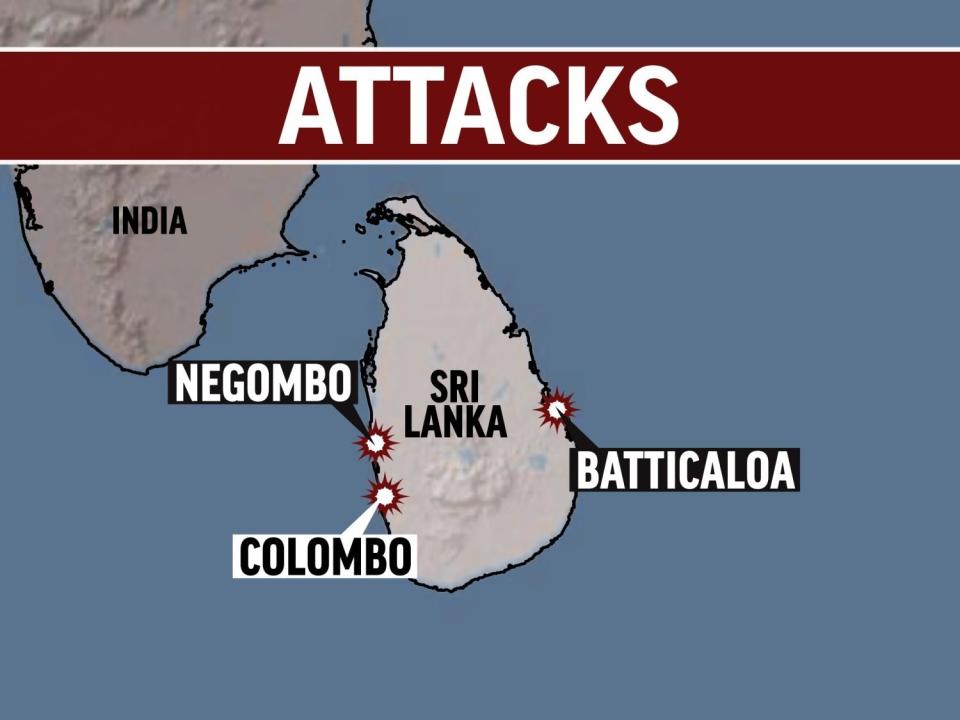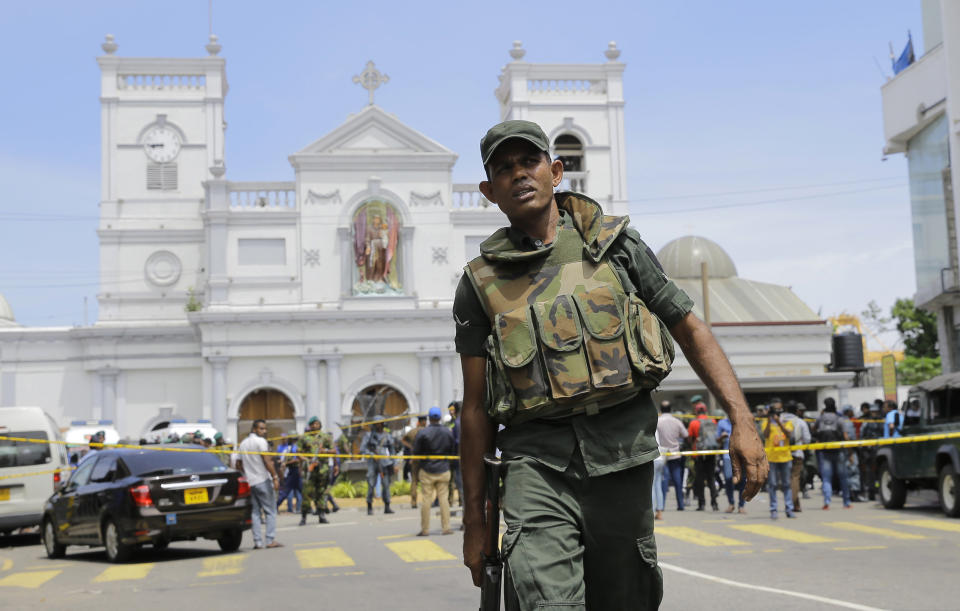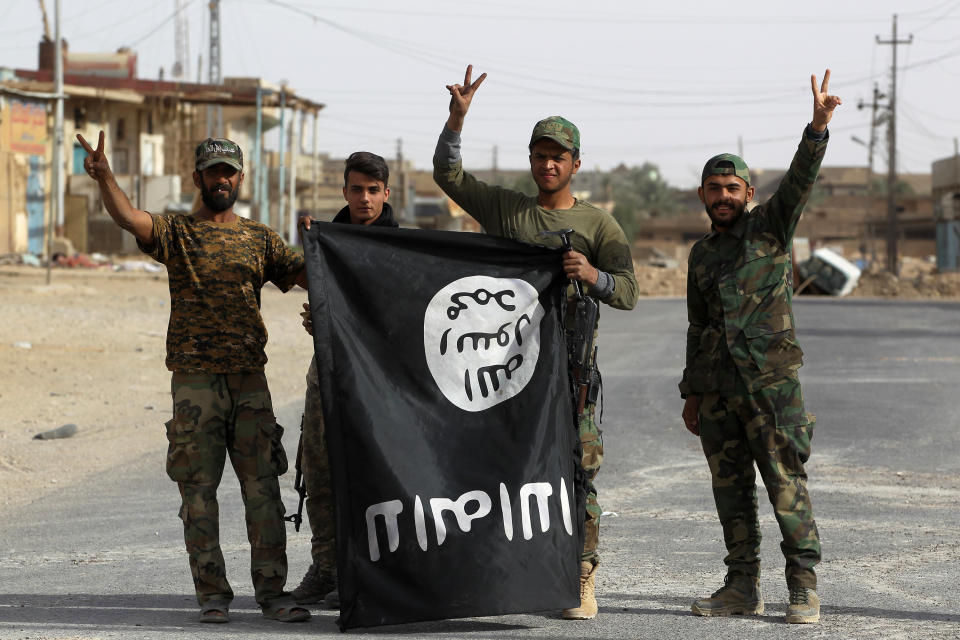Isis claims to have organised string of terror attacks killing more than 680

The so-called Islamic State claimed on Tuesday to have killed more than 680 people in a series of terror attacks in 13 days.
On Sunday, coordinated assaults saw more than 320 people killed in Sri Lanka, which Isis has claimed responsibility for.
That death toll is on top of a further 362 deaths from 92 attacks claimed by the terror group last week, according to The Times.
The attacks include suicide bombs, assassinations and landmines from Russia to West Africa in a “revenge invasion” after its geographic state was wiped out, from April 8 to Easter Sunday.

An expert has said the terror group will not stop taking credit, whether or not they were involved in specific incidents.
Professor Anthony Glees, director of the Centre for Intelligence Studies at the University of Buckingham, said that although the so-called Islamic State was defeated he believes they will continue to claim responsibility for actions that align with their ideology.
He said: “The problem with accepting what they say without further comment is that they have a track record, if it chimes with their core ideology, of saying they were responsible for an attack in some way.”
The jihadist group has not announced a new central base and claims to be operating as a covert network. It called the new campaign of terrorism “Vengeance for Sham [Greater Syria]”.
Last month, Abu Hassan al-Muhajir, a spokesman, said in a 44-minute audio recording that the White House’s claim of victory in Syria was confused and contradictory, and refused to admit defeat. From April 8 to 10, Isis issued statements claiming responsibility for 14 attacks in Iraq and 10 in Syria, and others in West Africa, Egypt, Somalia, Afghanistan, Libya and the Caucasus.

Analysts say that while the attacks in Syria and even Iraq might well be part of a co-ordinated campaign, those outside that region are probably not. A blast in Kolomna, south of Moscow, in which one person was injured, was the most tenuous claim, they said, with no evidence to back it. The local authorities said that it was caused by a gas leak.
Prof Glees added: “In the 19th century faced with the rise of socialism, emperors and kings said you can’t mount a horse to fight an idea, and in the same way you can’t destroy and idea with drones and bombs - you might destroy some people who fight for that idea, but it’s the idea that remains and it is so toxic.
“IS have absolutely nothing to lose and will absolutely lay claim to anything that takes their fancy and that looks like the sort of thing they might be involved in.”
Read more from Yahoo News UK:
Supermarkets secretly filmed shoppers
Woman arrested over journalist’s death
Tesla to turn its cars into driverless vehicles
Sri Lanka's president gave the military a wider berth to detain and arrest suspects on Tuesday - powers that were used during the 26-year civil war but withdrawn when it ended in 2009.
On Tuesday, which president Maithripala Sirisena declared a day of mourning, Sri Lankan authorities planned to brief foreign diplomats and receive assistance from the FBI and other foreign intelligence-gathering agencies after officials disclosed on Monday that warnings had been received weeks ago of the possibility of an attack by the radical Muslim group blamed for the bloodshed.
The six near-simultaneous attacks on three churches and three luxury hotels, along with three related blasts later on Sunday, were the South Asian island nation's deadliest violence in a decade.

The government blocked most social media to curtail false information. Even after an overnight, nationwide curfew was lifted, the streets of central Colombo remained mostly deserted and shops closed as armed soldiers stood guard.
Prime minister Ranil Wickremesinghe said he feared the massacre could unleash instability and he vowed to "vest all necessary powers with the defence forces" to act against those responsible.
In an indication of the tensions, three explosions caused panic but apparently no injuries on Monday as police were defusing bombs inside a van parked near one of the stricken churches.
Dozens of detonators were discovered near Colombo's main bus depot, but officials declined to say whether they were linked to the attacks.
International intelligence agencies had warned that the little-known group, National Thowfeek Jamaath, was planning attacks, but word apparently did not reach the prime minister's office until after the massacre, exposing the continuing political turmoil in the highest levels of the Sri Lankan government.

